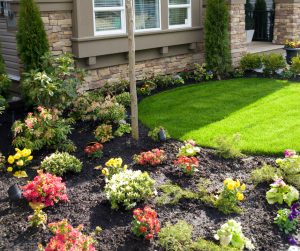
In many cases, feng shui principles and home design best practices go hand-in-hand. While feng shui focuses on how energy moves through a space, it incidentally leads to many wise decisions regarding the positioning of various home features. A feng shui swimming pool approach isn’t just believed to increase positive energy, but it also leads to a safe and attractive space.
Figuring out exactly how to promote positive energy when you have or want to add a swimming pool can be overwhelming. If you aren’t sure where to begin, here is a look at the feng shui of swimming pools.
Feng Shui Swimming Pool Placement
In feng shui, water is considered a symbol of abundance and life, making it a potent element in any area. It alters the flow of energy depending on several factors, one of which is the physical placement of the water feature in the physical space.
Balance is vital in feng shui, as well as the free movement of energy. As a result, you want to think carefully about where your pool is located on your property.
Traditionally, you wouldn’t want to place a water feature like a swimming pool in your backyard, as that doesn’t align closely with feng shui principles. Water positioned “behind” you is can have menacing or foreboding energy.
For better swimming pool feng shui, a position in the side yard is often better. This keeps it from sitting behind you, promoting better energy.
Does that mean you can’t have good feng shui with a backyard pool? No, it doesn’t. Instead, you may need to be more aware of other factors, balancing the less than an ideal location with positive design choices.
For example, if you need to have a backyard pool, try not to center it with your home’s rear center. Offsetting it a bit can promote better energy, reducing any potential negative impacts.
Using the Bagua Map to Place a Pool

You can use the feng shui Bagua map as a guide when choosing where to position a backyard pool. This simple tool helps you determine which sections of your yard align with various energy centers, allowing you to make better pool placement choices.
In traditional feng shui, when you use a Bagua map, you may want to position your swimming pool in a sector associated with the water element or where water can nourish the area’s element. Generally, along with supporting itself, water nourishes the wood element, giving you some options with pool placement.
Overall, a water element in the north, east, or southeast is well placed. The only exception here is if the water energy in your home or yard is too strong, where using a pool in a supportive manner could harm a larger goal of achieving balance.
A feng shui swimming pool in the south, as far as placement, isn’t ideal, as the south is governed by the fire element, putting the two energies in conflict. It’s also best to avoid setting a pool in an earth sector – such as the northeast or southwest – as that’s associated with the creation of “mud,” which can be harmful energetically.
However, in some cases, pools in those less desirable spots aren’t a bad idea. For example, if your home is overwhelmed with fire energy, placing a pool in a fire sector can tamp it down slightly, which may promote better balance.
Balancing Out a Pool’s Placement for Better Feng Shui
It is important to note that other choices can balance out a less than ideal pool position in your yard. You’ll simply need to add items that create a better environment based on the energy principles.
Every item in your pool area can imbue different types of energy. For example, terracotta tile surrounds are earthy, while living plants support the wood element. Lighting is aligned with fire, while wrought iron patio furniture adds metal.
Color choices can also support specific elements. For example, red is traditionally associated with fire, while blue is connected to water. By adjusting your color selections, you may be able to bring a space into better energetic alignment.
Precisely what you may need to do to overcome a poor placement depends on exactly where the pool sits and what else is in the area. However, it’s ultimately about creating balance, ensuring that key elements are adequately supported within the broader space.
Feng Shui Backyard Pool Shape and Size

The physical shape of your backyard pool also matters in feng shui. One of the most critical points is to avoid hard edges and “poison arrows” – the feng shui term for sharp angles – from piercing your home.
Generally speaking, a pool that features gentle curves is a better choice for a feng shui backyard pool. For example, an oval pool could be a great choice. However, if you want to take it up a notch, going with a kidney bean shape that seems like it is embracing the home is one of the best approaches. It allows the positive energy to cradle your house, which can be ideal.
When it comes to the size of your pool, feng shui principles align with design best practices. Keeping the pool proportionate is essential. If a pool is too large, it overwhelms the space energetically.
It’s also important to be mindful about how much room you have to move around the pool. If a walkway between your house and pool is particularly narrow, this reduces energy flow, which isn’t great from a feng shui perspective. Plus, it also makes your pool area more dangerous, could violate local building codes (for a new installation), and may make your property less attractive to buyers if you end up selling.
Feng Shui Swimming Pool Care Tips
While the position, size, and shape of your feng shui backyard swimming pool are all vital parts of the equation, so are various aspects of pool care. A neglected pool doesn’t promote positive energy, potentially increasing hardships in the sector associated with where the pool is located.
If you want to ensure that your swimming pool is helping you energetically, you’ll need to keep the pool clean, above all else. A dirty pool is harmful from an energy perspective, so skimming it regularly, using filters, and keeping any chemicals balanced is critical.
Additionally, you want to make sure that, even if your pool is clean, that it isn’t stagnate. Something as simple as a small waterfall or keeping a circulating filter running can help, as those both promote flow.
It’s also important to care for the structure of your pool and the surrounding area. Anything broken can harm the energy of a space. If you see broken tiles in your pool surround, try to replace them quickly. Additionally, if you see cracks in your pool itself – or tears in the vinyl liner, if you have one – get them fixed promptly. The same goes for damage to the walkways around your pool.
Ultimately, great feng shui for swimming pools is about promoting positive but balanced energy. If you make choices that support good flow – both physically and energetically – then you’re likely on the right track.




